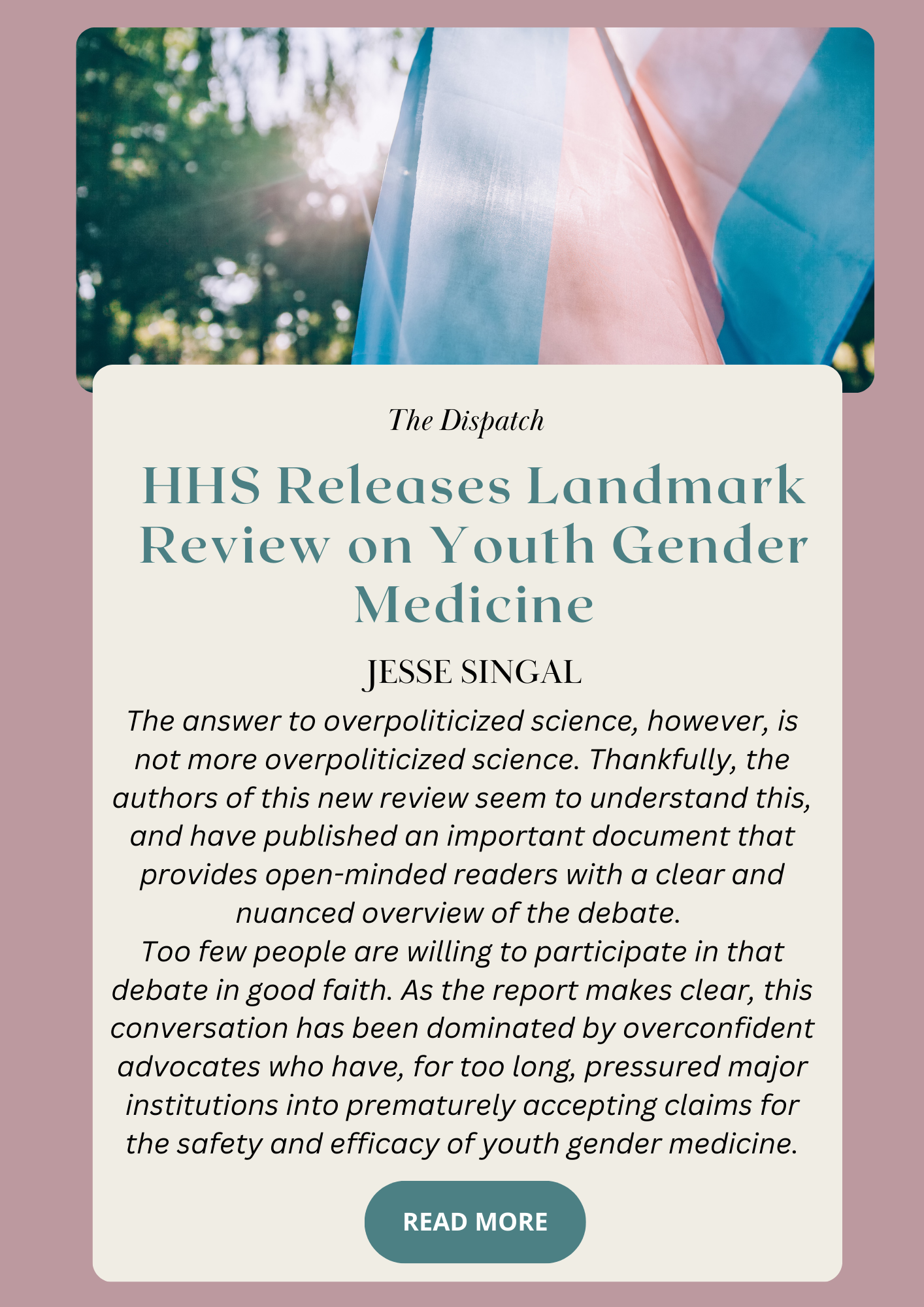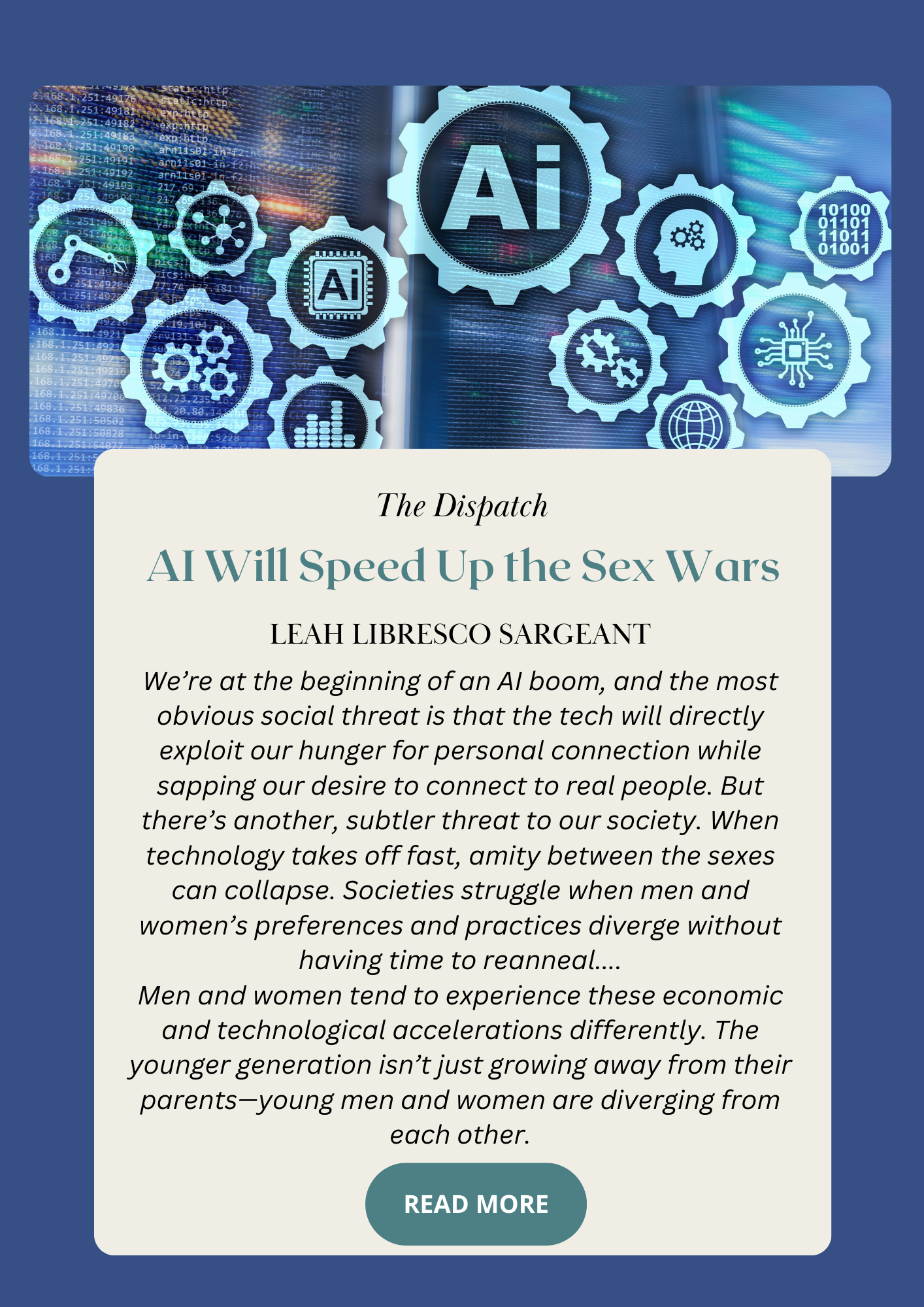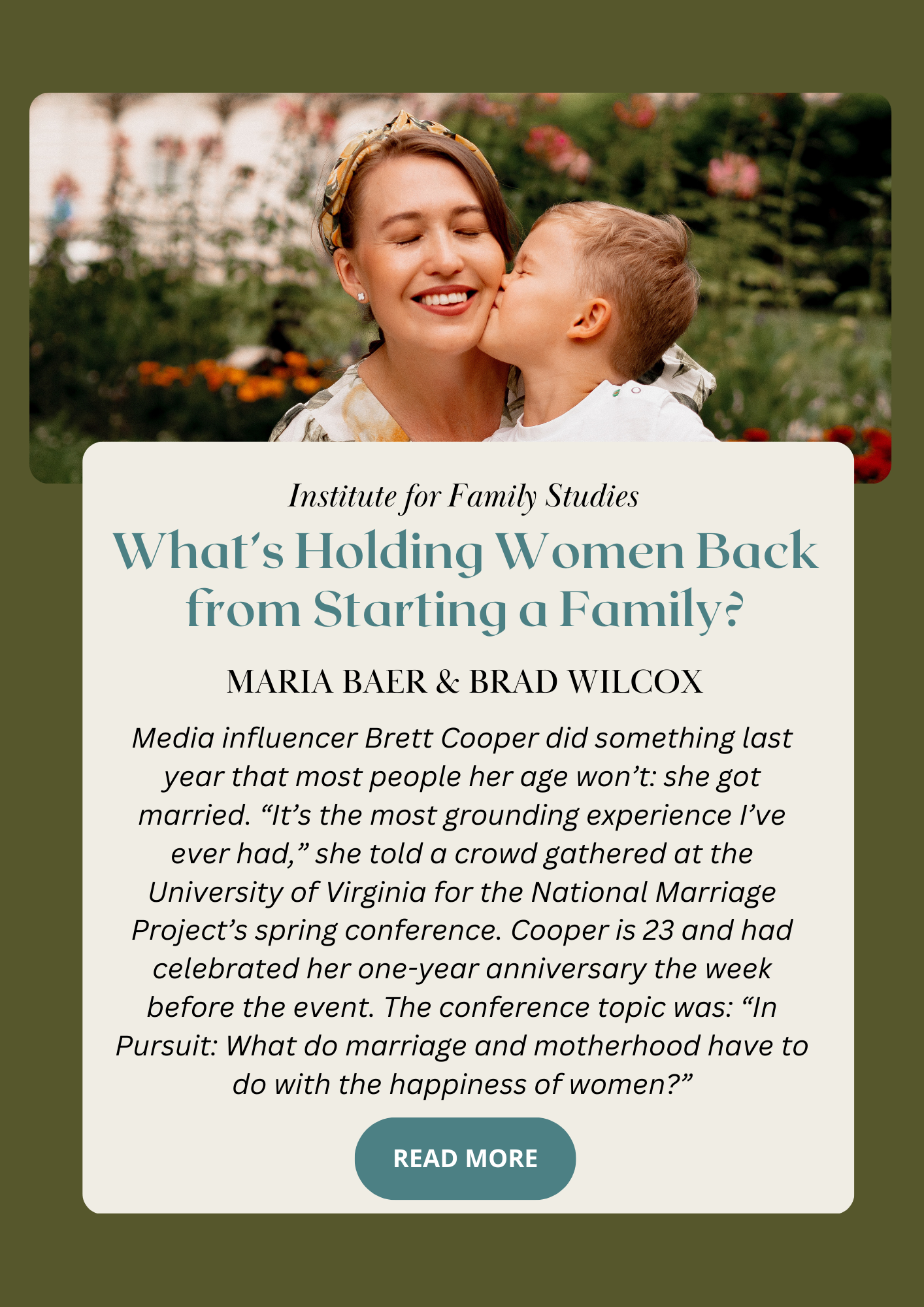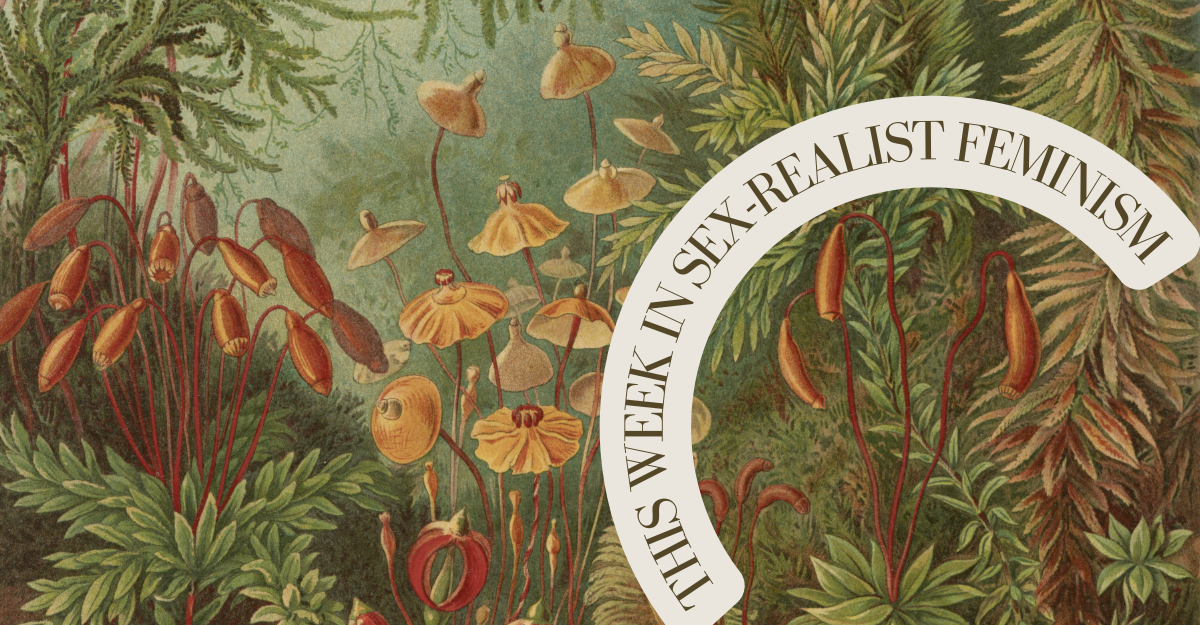Welcome to the weekly Fairer Disputations round-up: your one-stop shop for the best in sex-realist feminism. This week: Jesse Singal on the HHS report on youth gender transition, Leah Libresco Sargeant on AI and the sex wars, and Maria Baer and Brad Wilcox on what’s stopping women from embracing family life. Plus: the problem of patriarchy, how algorithms killed romance, helicopter parenting, the progressive man’s manosphere—and more!
First, Jesse Singal provides a nuanced treatment of the productive new HHS report on gender transition in minors—and discusses the downsides of politicizing such a contentious issue.

Next, Featured Author Leah Libresco Sargeant discusses the implications of technological advancement on the relationship between the sexes—and how to survive the coming crisis.

Finally, Maria Baer and Brad Wilcox write about the recent National Marriage Project’s conference—co-sponsored by Fairer Disputations!—on marriage, motherhood, and women’s happiness. You can watch the panel discussion here.

More Great Reads:
- The Problem of Patriarchy, John B. Doherty, Public Discourse
- What Parents of Boys Should Know, Joshua Coleman, The Atlantic
- How Algorithms Killed Romance, Matthew Gasda, UnHerd
- Trans Activism is Progressive Man’s Manosphere, Victoria Smith, The Critic
- Are We All Just Pretending to Be Helicopter Parents?, Stephanie Murray, Family Stuff
Fairer Disputations Recommends:
Featured Author Angela Franks has a book out soon, published by Notre Dame Press and available for pre-order now:
Body and Identity: A History of the Empty Self, by Angela Franks
Angela Franks provides a sweeping intellectual history of identity, particularly in terms of how identity relates to the body, with an emphasis on the importance of Christianity to this understanding.
Modern questions about our bodies and how we see ourselves are often complex and problematic. To better answer these contemporary questions and navigate “identity politics,” Angela Franks seeks to provide a better understanding of identity. She begins by giving three basic meanings of the term: identity through time, the “true” or authentic self, and our awareness of ourselves. She engages with thinkers from antiquity to present day and investigates the decisive developments that Christianity provided. Within Christianity came a new awareness of the distinctive individuality of each person—the “true self”—called by God in a way that often breaks away from the “solid” or fixed structures of identity formation, such as family, class, and nation. This more “liquid” idea of identity continues to evolve in modern times, though without its theistic emphasis on God’s call. The result is a purely liquid self that consists of consciousness and activity, but without a grounded self that is either the object or the subject of consciousness. This is the empty self we have today, one that is given much more to do and less to be.
A comprehensive history of identity, Body and Identity brings the theological history of the self to the forefront in order to address the empty self and how identity is defined today.




